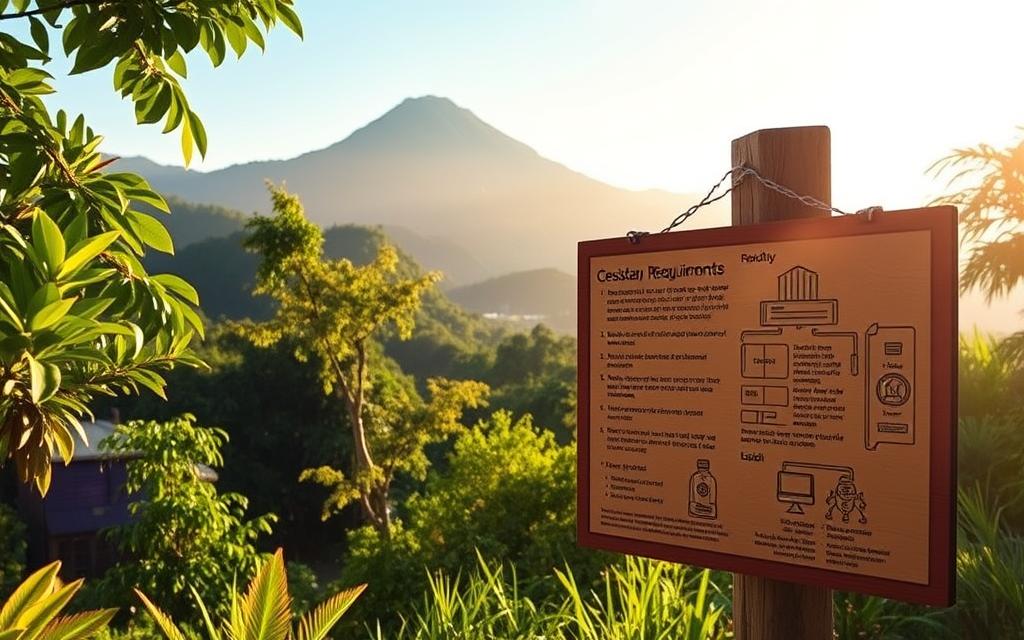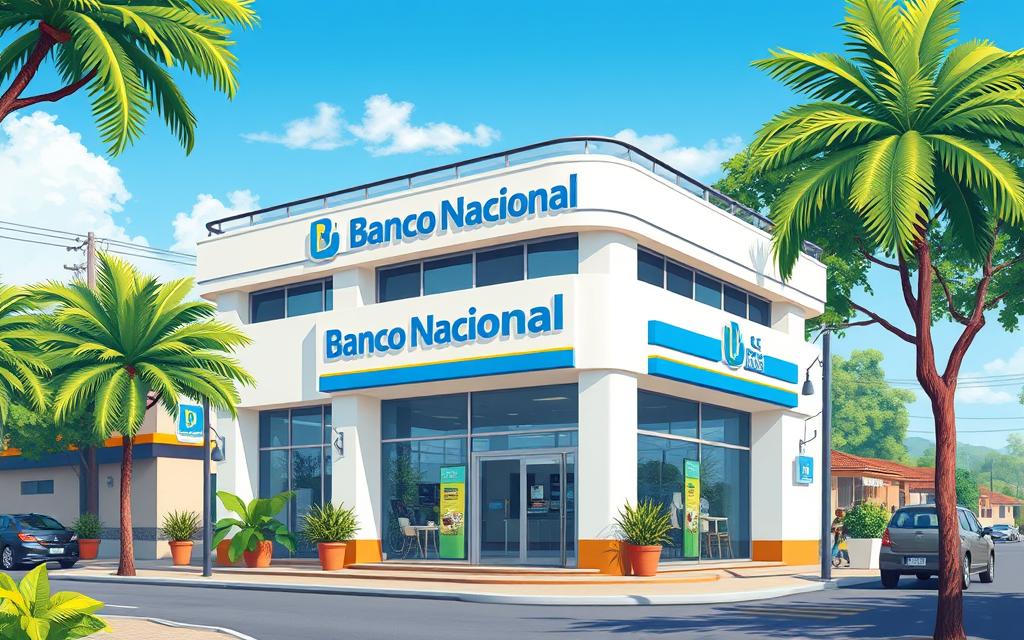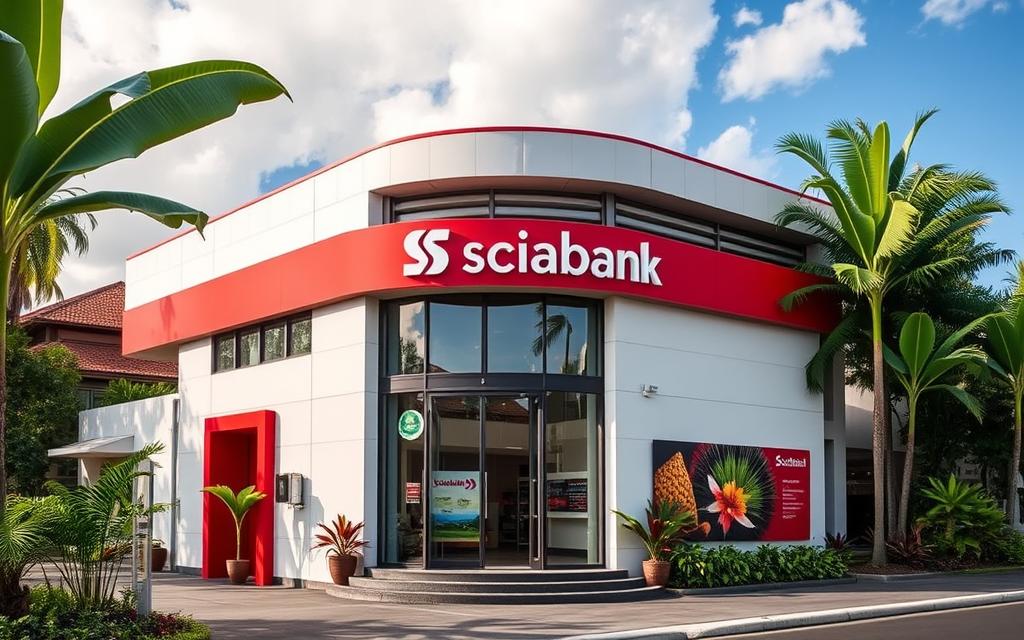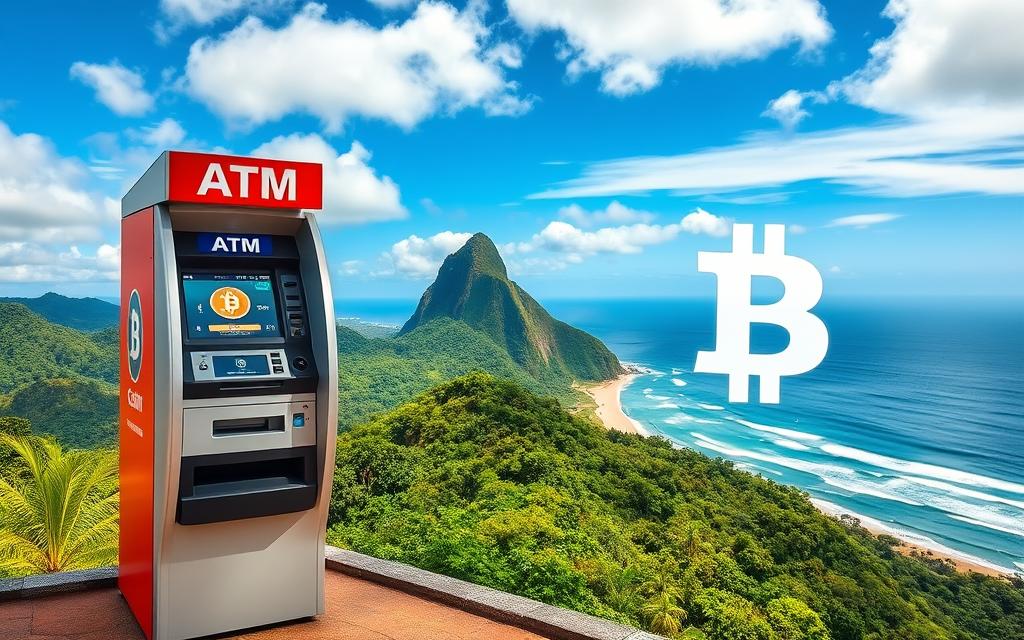Best banking options for digital nomads in Costa Rica

Costa Rica has become a haven for individuals and families seeking a better quality of life. Known for its natural beauty, mild climate, and rich culture, this Central American country is an attractive destination for those who wish to settle temporarily or permanently.
The concept of "pura vida" reflects the tranquil and healthy lifestyle enjoyed by its inhabitants. As the digital nomad community in Costa Rica continues to grow, the need for flexible financial solutions becomes increasingly important.
We will explore the banking landscape in Costa Rica, covering both traditional institutions and modern digital alternatives that cater to the unique needs of location-independent professionals.
Understanding Costa Rica's Banking System

The banking system in Costa Rica is characterized by a mix of state-owned and private banks, offering a range of services to individuals and businesses, including digital nomads.
Public vs. Private Banks
Costa Rica's public banks, such as Banco Nacional and Banco de Costa Rica, offer government-backed security but often involve more bureaucratic processes. In contrast, private banks like BAC Credomatic and Scotiabank provide enhanced services for international clients, potentially with higher minimum balance requirements.
Public banks are known for their stability and security, while private banks offer more flexibility and customer service tailored to international clients.
Banking Regulations and Security
Costa Rica's banking regulations are robust and align with international standards, including anti-money laundering protocols and customer verification procedures. Banks in Costa Rica are required to thoroughly vet their customers, ensuring a secure banking environment.
The government's emphasis on security and compliance means that digital nomads can trust the banking system, with their finances protected by stringent regulations.
Why Digital Nomads Need a Costa Rican Bank Account

Digital nomads in Costa Rica can greatly benefit from having a local bank account, which simplifies their financial operations. In Costa Rica, getting a bank account is key for expats to handle money without paying high exchange fees.
Managing Local Expenses
Managing everyday expenses like rent, utilities, and groceries becomes challenging without access to local banking services. Having a Costa Rican bank account facilitates integration into local communities and business networks, creating more authentic experiences for digital nomads. It allows them to use local currency, colones, and foreign currencies like US dollars, making it easier to handle finances.
Avoiding Excessive Foreign Transaction Fees
Local bank accounts help digital nomads avoid excessive foreign transaction fees that can quickly accumulate when using international cards for daily purchases. With a Costa Rican bank account, digital nomads can access local payment systems like SINPE Móvil, which is essential for peer-to-peer transactions in Costa Rica. This helps them better manage their budgets while working remotely.
Residency Requirements for Banking in Costa Rica

To navigate Costa Rica's banking system, it's essential to comprehend the different residency statuses and their implications. Costa Rica offers a variety of residency options to suit different needs and circumstances, including rentista residency for those with stable income, investment residency for business investors, and permanent residency for long-term foreigners.
Banking Options for Non-Residents
Non-residents face more challenges when trying to open a bank account in Costa Rica. However, some banks have simplified processes for non-resident foreigners. For instance, Banco de Costa Rica (BCR) has made it easier for non-residents to open personal bank accounts with minimal documentation.
Other banks may offer simplified accounts with limited functionality and transaction caps for non-residents. Understanding these options is crucial for non-residents who need to manage local expenses or receive payments in Costa Rica.
Digital Nomad Visa Holders and Banking
Costa Rica's Digital Nomad Visa, introduced in 2021, allows remote workers to reside in the country for up to two years. This visa not only simplifies the process of opening a local bank account but also offers benefits like tax exemptions on necessary electronic equipment.
Digital nomad visa holders must meet specific requirements, including a minimum income of $3,000 per month and valid medical insurance. With this visa, digital nomads can more easily access banking services, facilitating their financial management while living in Costa Rica.
Best Banking Options for Digital Nomads in Costa Rica
Digital nomads flocking to Costa Rica require banking solutions that cater to their unique needs, including international transactions and remote account management. In this section, we will explore the top banking options available to digital nomads in Costa Rica.
BAC Credomatic
BAC Credomatic is a top choice for digital nomads due to its comprehensive English-language services and user-friendly mobile app. Their "Expat Package" includes a checking account, savings account, and debit card with simplified documentation requirements for foreigners.

Banco Nacional
Banco Nacional is one of Costa Rica's top state-owned banks, offering an extensive network of branches and ATMs throughout the country. This provides enhanced security through government backing, making it an attractive option for expats.

Scotiabank Costa Rica
Scotiabank's "Visitor Account" can be opened with minimal documentation, including a passport, proof of income, and proof of address from your home country. This makes it an accessible option for digital nomads.

When choosing a bank, digital nomads should consider factors such as minimum balance requirements, monthly maintenance fees, and international transfer costs. By comparing these factors across BAC Credomatic, Banco Nacional, and Scotiabank, digital nomads can make informed decisions about their banking needs in Costa Rica.
Specialized Banking Services for Digital Nomads

As digital nomads, we're always on the lookout for banking services that cater to our unique needs while living and working in Costa Rica. The country's banking landscape is evolving to meet the demands of remote workers, offering a range of specialized services that combine traditional banking with modern digital solutions.
Digital Banking Platforms
Most banks in Costa Rica now provide online and digital banking services, making it easy for digital nomads to manage their finances from anywhere in the world. BAC Credomatic stands out in the world of online banking, allowing users to open an account online without visiting a physical branch. Popular digital banking options include BAC Credomatic and other major banks that offer robust online and mobile banking services.
International Money Transfer Services
Digital nomads in Costa Rica can benefit from various international money transfer services that integrate well with local banking systems. Services like Wise (formerly TransferWise), PayPal, and SINPE Móvil have become essential for remote workers. The recent expansion of Apple Pay to Costa Rica in 2024 has also provided digital nomads with more contactless payment options.
Documentation Required to Open a Bank Account

Opening a bank account in Costa Rica as a digital nomad requires careful preparation of specific documents. The requirements can vary depending on whether you're a non-resident or a digital nomad visa holder. Understanding these requirements is crucial for a smooth account opening process.
Essential Documents for Non-Residents
Non-residents need to provide several key documents to open a bank account in Costa Rica. These include a valid passport with at least six months' validity, a secondary ID such as a driver's license, and proof of income. Proof of income can be demonstrated through recent bank statements, an employment verification letter, tax returns, or investment statements. Additionally, you'll need to provide proof of address in your home country, such as a utility bill or bank statement, and a reference letter from your current bank. All documents not in Spanish must be officially translated, and some may require apostille certification.
Additional Requirements for Digital Nomad Visa Holders
Digital nomad visa holders have additional requirements to open a bank account in Costa Rica. Besides the essential documents required for non-residents, you must provide your digital nomad visa documentation, proof of health insurance, and proof of stable foreign income, which should be a minimum of $3,000 per month. A valid Costa Rican address is also essential, which can be proven through a utility bill, rental agreement with notary certification, property title deed if you own property, or a cell phone bill in your name. Ensuring you have all these documents ready will facilitate the account opening process.
Step-by-Step Guide to Opening a Bank Account
To navigate Costa Rica's banking system successfully, it's essential to understand the steps involved in opening a bank account. This process is crucial for digital nomads who need to manage their finances locally.
Preparing Your Documentation
Before visiting a bank, gather all necessary documents. You will need your passport and a document to prove your address, such as a utility bill or rental agreement. Additionally, be prepared to show proof of income and have some cash for the initial deposit. Different banks may have varying requirements, so it's wise to check beforehand.
The Application Process
Once you have your documents ready, head to the nearest branch of your chosen bank. Make an appointment if possible, as this can save time. You'll need to fill out forms and provide your details. The bank will also require an initial deposit, typically between 14,240 to 57,000 CRC (around $25 to $100). Be prepared for an interview with a bank representative, where they may ask about your income sources and planned account activity.
What to Expect After Applying
After submitting your application, the bank will review your documents and information. This process can take anywhere from a few days to several weeks, depending on your residency status and the bank's internal processes. If there are any issues or additional information is needed, the bank will contact you. Once your account is approved, you'll be notified, and you can begin using your new bank account.
Understanding Account Types and Features
When banking in Costa Rica, digital nomads have several account types to choose from, each with unique features. Understanding these options is crucial for managing finances effectively.
Checking vs. Savings Accounts
In Costa Rica, checking accounts are designed for frequent transactions, making them ideal for digital nomads who need to pay local expenses regularly. Savings accounts, on the other hand, are geared towards saving money and typically offer higher interest rates. Checking accounts usually require a minimum initial deposit of $200-1,000 USD, while savings accounts require $50-500 USD.
Dual Currency Accounts
Many expats in Costa Rica prefer dual currency accounts, which allow transactions in both Costa Rican colones and US dollars. This feature is particularly beneficial for digital nomads who receive income in foreign currencies. Dual currency accounts simplify international money transfers, reduce exchange rate risks, and provide flexibility in managing local and international expenses.
Banking Fees and Minimum Balance Requirements
As a digital nomad in Costa Rica, it's essential to comprehend the banking fees and minimum balance requirements to avoid unnecessary charges. Understanding these costs is crucial for managing your finances effectively while living and working in Costa Rica.
Monthly Maintenance Fees
Most Costa Rican bank accounts come with monthly maintenance fees ranging from $2 to $15 USD. These fees can often be waived by maintaining higher balances, setting up direct deposits, using your debit card for a minimum number of transactions, or bundling multiple products with the same bank. For instance, some banks may waive the monthly maintenance fee if you maintain a minimum balance of $100 to $1,000 USD, depending on the institution and account type.
International Transaction Costs
International transaction costs vary significantly across different banks in Costa Rica. For example, BAC Credomatic charges between $25-45 for international transfers, while Banco Nacional charges $35-55. Scotiabank, on the other hand, charges between $20-40. Understanding these costs is vital for digital nomads who frequently transfer money across borders.
By understanding the banking fees and minimum balance requirements, digital nomads can make informed decisions when choosing a bank in Costa Rica. It's also important to consider other costs, such as ATM withdrawal fees and inactivity policies, to minimize unnecessary expenses.
Online and Mobile Banking Options
Costa Rica's banking system has evolved to cater to the needs of digital nomads, offering robust online and mobile banking services. Most banks in Costa Rica now provide online and digital banking services, making it easy for expats to handle their money from anywhere in the world.
Mobile Banking Apps
Mobile banking apps have become essential tools for digital nomads. BAC Credomatic, for instance, offers a highly rated mobile banking app that allows users to manage their accounts, transfer funds, and pay bills on the go. When choosing a bank, consider the quality and functionality of their mobile banking app.
Digital Payment Systems
Costa Rica has seen a significant expansion in digital payment systems, including the introduction of Apple Pay in 2024 and the widespread adoption of SINPE Móvil for domestic transfers. These systems offer digital nomads convenient and secure ways to make transactions. For more information on the best banking options for digital nomads in Costa Rica, you can visit this resource.
ATM Access and Cash Withdrawal Strategies
As digital nomads in Costa Rica, understanding ATM access and cash withdrawal strategies is crucial for managing finances effectively. Costa Rica's ATM network is widespread, particularly in urban areas, but the fees associated with using foreign cards can be significant.
ATM Networks and Availability
State-owned banks like Banco Nacional and Banco de Costa Rica have extensive ATM networks across Costa Rica, making them convenient options for digital nomads. In contrast, private banks may offer quicker service but have fewer ATMs, particularly in rural areas. Understanding the ATM network landscape is essential for choosing the right banking option.
Minimizing Withdrawal Fees
To minimize withdrawal fees, which can range from $3 to $5 per transaction, digital nomads should consider strategic account choices and withdrawal patterns. Choosing a bank with a large ATM network or using a digital banking platform that reimburses ATM fees can significantly reduce costs. Additionally, withdrawing larger amounts less frequently can help minimize the impact of these fees.
Tax Implications for Digital Nomads Banking in Costa Rica
As digital nomads consider banking options in Costa Rica, understanding the tax implications is crucial for financial planning. Costa Rica's tax system is territorial, meaning only income generated within the country is subject to taxation.
Costa Rican Tax Considerations
Costa Rica's territorial tax system benefits digital nomads working for foreign companies or serving international clients, as they generally don't have to pay local taxes on their earnings. The country has tax agreements with several nations, including Germany, Spain, Mexico, and the UAE, to avoid double taxation. It's essential for digital nomads to check if these treaties apply to their situation to avoid tax surprises.
International Tax Reporting Requirements
U.S. citizens, in particular, must report their global income to the IRS. However, they might be eligible for the Foreign Earned Income Exclusion (FEIE), which could lower their taxable income by up to $101,300. Additionally, U.S. citizens with bank accounts exceeding $10,000 in Costa Rica must comply with FBAR (Foreign Bank Account Report) obligations and FATCA requirements. For more information on transferring money to Costa Rica, you can visit this resource.
Maintaining proper financial records and seeking professional tax advice is crucial for digital nomads to ensure compliance with both Costa Rican regulations and their home country's tax requirements.
Banking Challenges for Digital Nomads and How to Overcome Them
The banking experience for digital nomads in Costa Rica is often marred by language barriers and bureaucratic red tape. As digital nomads settle in Costa Rica, they encounter a banking system that, while secure and well-regulated, can be challenging to navigate.
Language Barriers
One of the primary challenges digital nomads face is the language barrier. English support varies significantly between banks and even between branches of the same bank. To overcome this, digital nomads can research English-friendly branches, typically found in tourist areas or financial districts. Utilizing translation apps like Google Translate can also help with forms and banking documents. For important matters, consider hiring a professional translator or bringing a bilingual friend.
Bureaucratic Hurdles
Bureaucratic processes can significantly delay account opening and financial transactions. Document verification, for instance, may take weeks rather than days. Building a relationship with specific bank representatives can help expedite future transactions. For more information on transferring money to Costa Rica, you can visit this guide on international money transfers.
Alternative Financial Solutions for Digital Nomads
As digital nomads, we often face challenges with traditional banking systems, making alternative financial solutions a necessity. While Costa Rican banks offer various services, digital nomads may benefit from exploring additional options that provide greater flexibility and international connectivity.
International Online Banks
International online banks like Wise, Revolut, and N26 offer borderless accounts and competitive currency exchange rates, making them attractive alternatives for digital nomads. These banks provide seamless international transactions and often lower fees compared to traditional banks.

Cryptocurrency Options
Costa Rica has seen a growing acceptance of cryptocurrencies, with some businesses accepting digital currencies as payment. Digital nomads can explore local exchanges and Bitcoin ATMs to manage their crypto assets. However, it's essential to understand the legal status of cryptocurrencies in Costa Rica and potential tax implications.

Tips from Experienced Digital Nomads in Costa Rica
As digital nomads continue to flock to Costa Rica, experienced nomads share their valuable insights on navigating the country's banking system. With the rise of digital nomadism in Costa Rica, understanding the local banking landscape is crucial for a seamless experience.
Banking Success Stories
Experienced digital nomads have developed creative solutions to common banking challenges in Costa Rica. For instance, Patricia Mora, a relocation specialist in San José, suggests obtaining a prepaid phone plan as a quick way to establish proof of address, which many banks accept. Developing a relationship with a specific banker can also expedite future transactions, making banking more efficient.
Common Mistakes to Avoid
Newcomers to Costa Rica's banking system often make avoidable mistakes. One common error is failing to report Costa Rican accounts to their home country's tax authorities. Jennifer Thomas, an expat tax specialist, emphasizes the importance of this, especially for Americans who face strict reporting requirements. Keeping detailed records of all banking communications is also crucial for avoiding future complications.
By learning from experienced digital nomads and avoiding common mistakes, newcomers can navigate Costa Rica's banking system with confidence and ease.
Conclusion
As we conclude our comprehensive guide to banking in Costa Rica for digital nomads, it's clear that navigating the local financial system is crucial for a seamless experience. Throughout this guide, we've explored the various banking options available to digital nomads in Costa Rica, highlighting the distinctions between public and private banks, as well as the documentation required to open a bank account.
For digital nomads holding a specific visa, understanding the special considerations and banking privileges is essential. We've also discussed the value of both traditional Costa Rican bank accounts and alternative financial solutions, suggesting that a hybrid approach can be beneficial. When establishing banking in Costa Rica, patience and persistence are necessary, but the benefits of local financial access significantly enhance the digital nomad experience in this beautiful Central American country.
For personalized advice on managing your finances in Costa Rica, you can reach out to us at info@jaroscr.com or +(506)7182-8969. Visit our website at www.jaroscr.com for more information. We encourage digital nomads to seek professional advice for their specific situations while enjoying Costa Rica's natural beauty and relaxed lifestyle.


